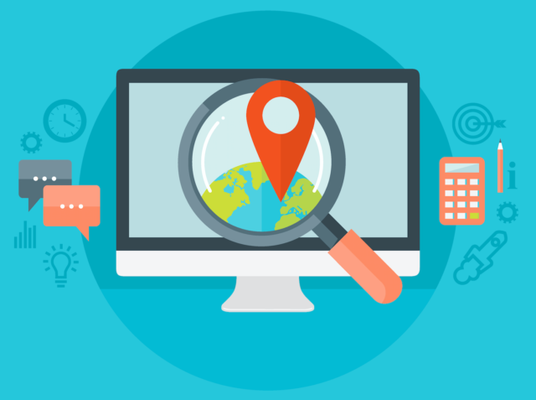
More people than you’d expect are confused about what to do if they think they have COVID-19, due constant changes and mixed messages. If your healthcare organization runs COVID-19 testing facilities – and even if it doesn’t – your patients and communities rely on local information to consider their options.
In a recent ReviveHealth survey, nearly two-thirds of people said they don’t have enough or any information on the testing process, while just 30% know where to go. If you provide coronavirus-related services or testing, it’s imperative that your website and content reflect that.
Healthcare communicators and marketers need to regularly post updates to websites, email lists, third-party listings and social media channels so communities know your role in testing and treatments.
In this article, we’ll cover ways for healthcare marketers to provide updated, accurate information about COVID-19 testing facilities and other services related to the disease outbreak.
One of the first steps is to display a banner or alert message on your organization’s websites and local pages. Include information about your COVID-19 services, testing capabilities, important community updates, and call-to-action buttons guide users to the correct pages or contact information.
You can take this a step further by building new landing pages with information about how prospective patients can get in touch or come in to get tested. Some organizations are also using live chat functionality on their sites to answer specific questions.
Social distancing has led to myriad reschedules and cancellations for nonessential in-person healthcare appointments as consumers avoid medical facilities and providers focus on patients infected by COVID-19. If your organization offers telemedicine, now is a good time to promote those services on your website. Many insurance plans have introduced changes to accommodate telehealth and telemedicine
With all of your web content, consider FAQs and provide specific answers to avoid a flood of phone calls and contact forms. Marketers should anticipate these questions related to coronavirus testing facilities:
If your website lists information on testing facilities or drive-thru testing locations, you can use this structured data format from schema.org to alert search engines that you have coronavirus-specific capabilities. Don’t forget to also answer these frequent questions on physician profile pages to make sure searchers are aware of your providers’ specialties, services and hours, even if unrelated to COVID-19.
Once you have updated information and answers to testing FAQs on your website, use social media to drive people in your community to your appropriate pages or posts.
Post real-time updates on your Facebook, Twitter and other social media platforms with a consistent message about COVID-19 testing facilities and availability. With so many working from home, people are engaging more frequently with social media and seeking information from local healthcare experts.
Remember, Facebook and Instagram algorithms favor personal accounts over business pages, so as few as 4% of your organization’s followers will see your organic posts there. Consider paid social to spread geographically targeted information about your COVID-19 services beyond your usual audience.
Keep in mind that Twitter is (by far and away) the most-used platform for coronavirus comments related to brands, according to Binary Fountain’s platform data. If nothing else, marketers should pin a coronavirus announcement or website link to the top of their Twitter profiles as soon as possible.
Your marketing team can also consider publishing COVID-19 Google Posts and other short content with recent announcements and relevant information, such as links to CDC and WHO information about coronavirus testing.
In this crisis, third-party listings can be just as important as your own webpages. Make sure to edit or remove inaccurate business listings wherever they arise, especially concerning hours of operation and available medical services.
Attributes to monitor across all third-party directories include hours of operation, addresses, phone numbers, available services, contact information for different departments and specialties, and business descriptions that include COVID-19-related capabilities.
You should also consider leveraging other sites that are being created to screen patients virtually and offer testing site information. Google sister company Verily launched a website to screen people who might have COVID-19 and point them toward active testing locations, and Apple created a COVID-19 Screening Tool in conjunction with the CDC.
In addition to the Verily screening site, Google has launched several features to help healthcare organizations display testing capabilities.
The search engine has slightly relaxed guidelines for COVID-19-related business listings, temporarily allowing small edits to your business name for unique services like virtual visits, drive-thru testing or curbside prescription pickup.
For health organizations specifically, you can add COVID-19 announcements to your website markup that signal to search engines that you have testing centers available. These announcements can include the closure of facilities, rescheduling of events, and new services for medical facilities. Many healthcare providers can now also add “COVID-19 info link” and “Telehealth info link” attributes to their GMB profiles.
For more on reputation management during the coronavirus health crisis, you can visit our COVID-19 Resources Page and browse these articles:
The original version of this page was published at: https://utm.io/uy1k
Binary Fountain is the leading provider of consumer feedback management solutions designed specifically for healthcare and multifamily residential in a single cloud-based platform. Its consumer exp... Read more
Historically patient feedback in healthcare was measured solely with CAHPS surveys. Now that’s changed.Whether you work for a hospital, physician practice, or another type of ...read more
COVID-19’s spread is ramping up once again and continuing to change consumer behavior in the U.S. Uncertainty remains high as outbreaks resurge, state regulations change, and ...read more
To help companies and organizations publish crucial COVID-19 information for customers and communities, Google has added a coronavirus-related announcement feature to Google Search.At ...read more
The healthcare industry relies heavily on data to find patterns, make breakthroughs, and improve the lives of all patients. However, healthcare providers deal with so much data that ...read more

Unlock High Performance, HIPAA-Compliant Marketing
Purpose built for Healthcare Marketing in a Privacy-Focused World